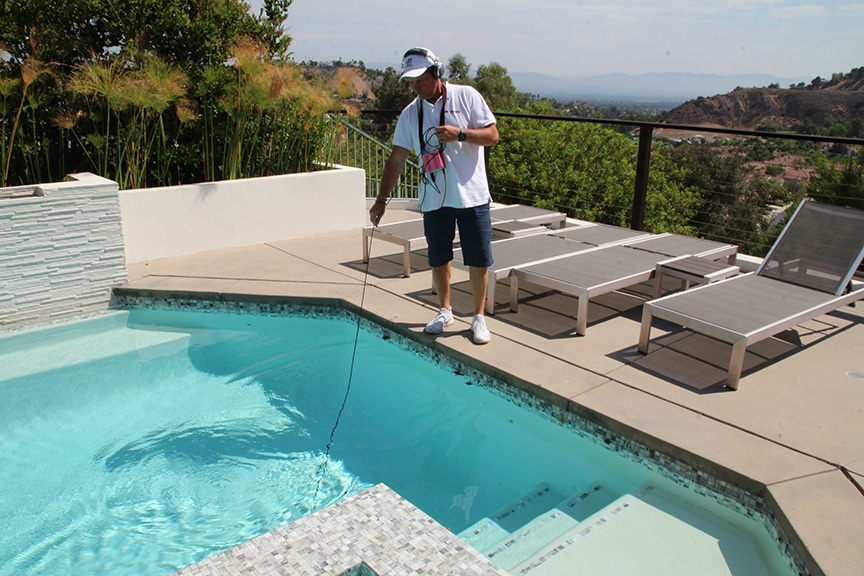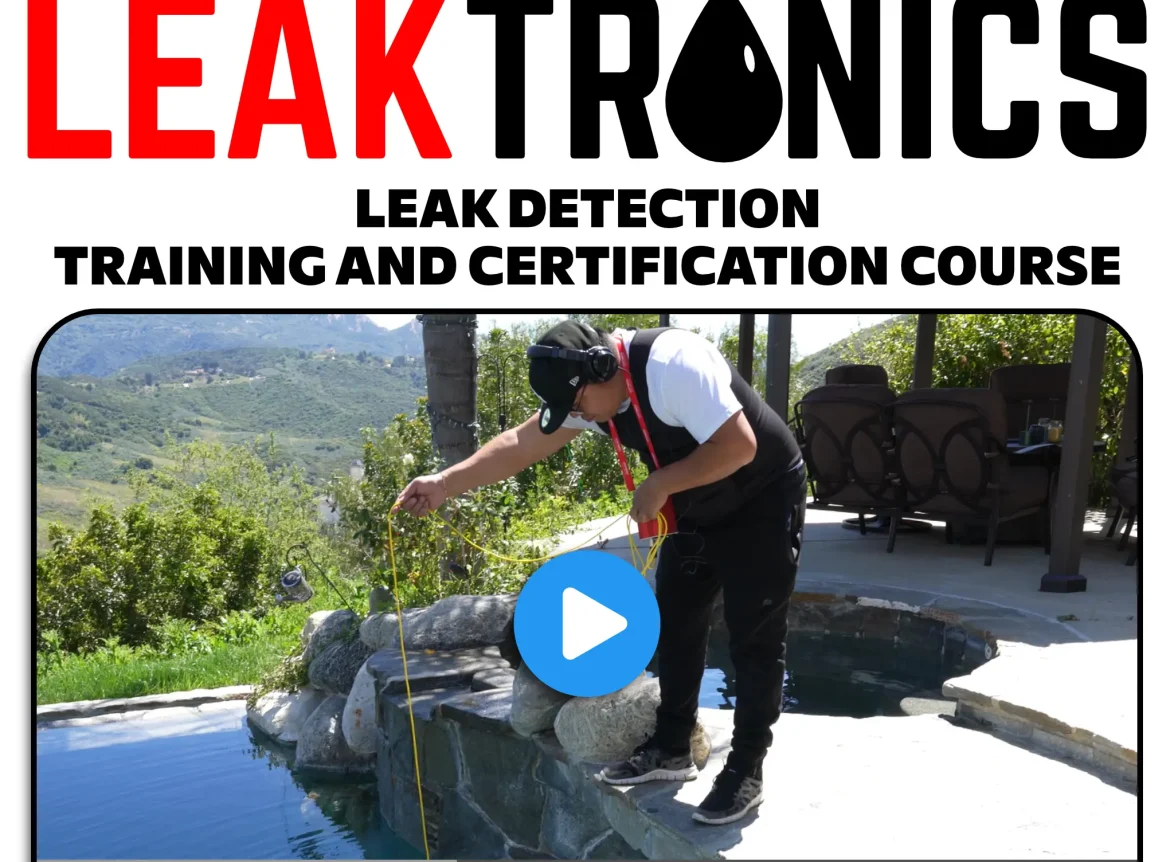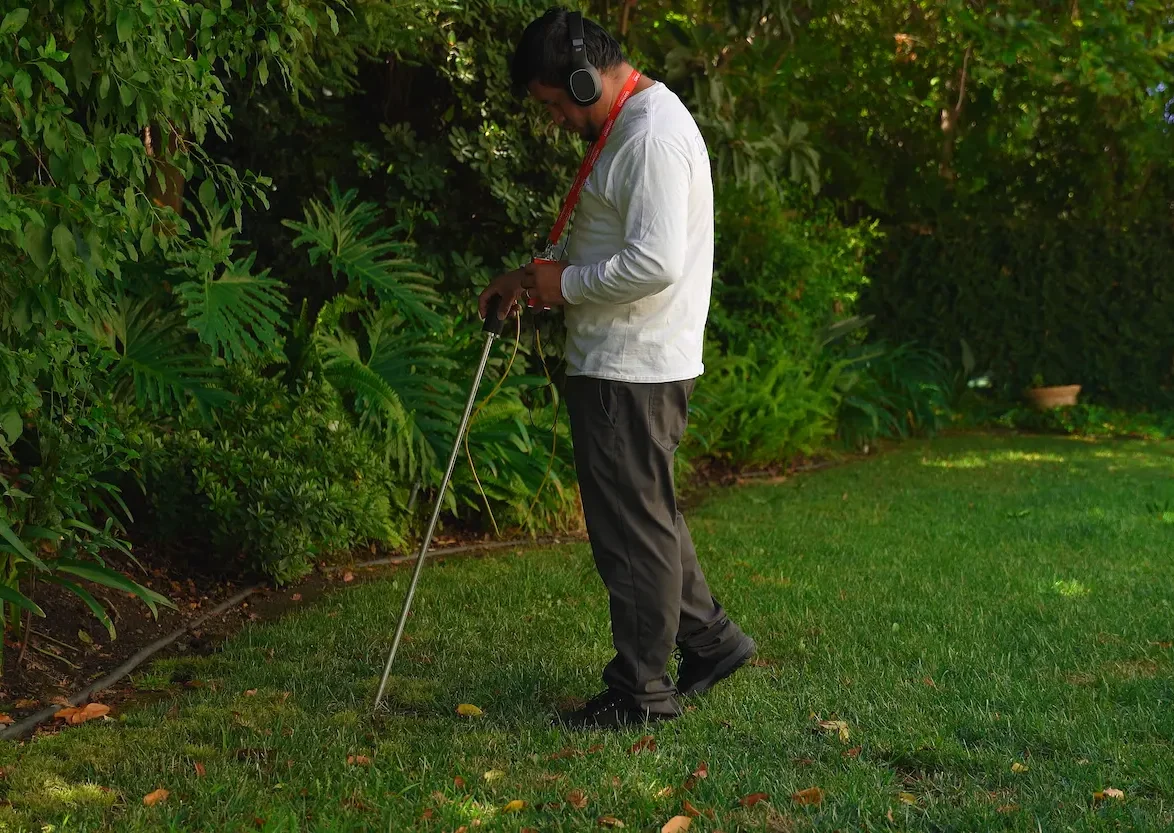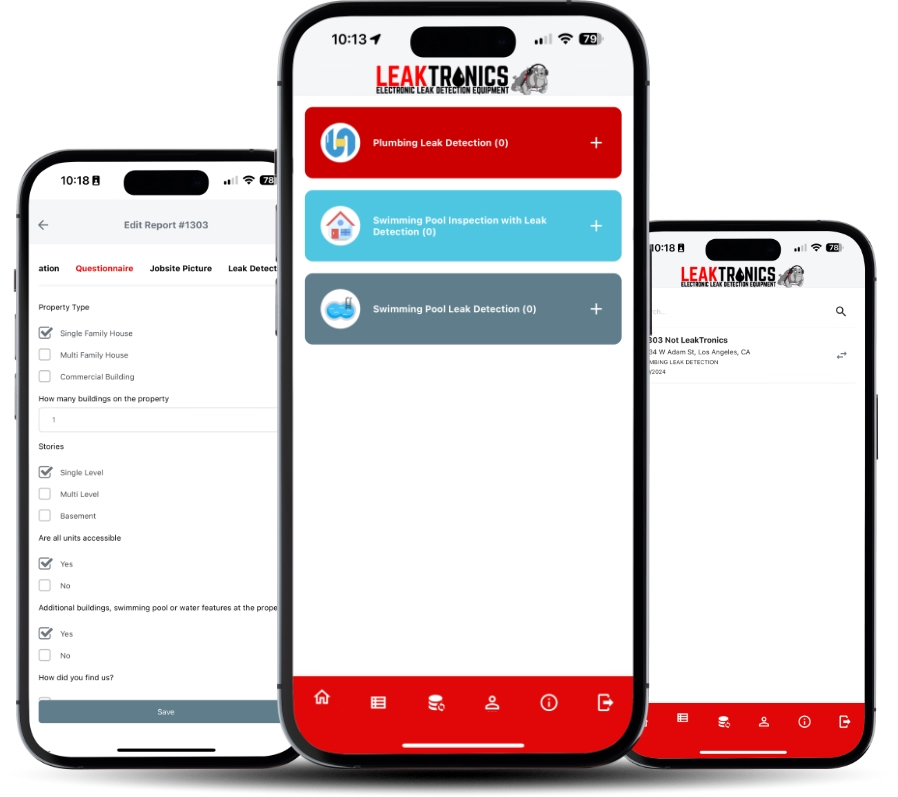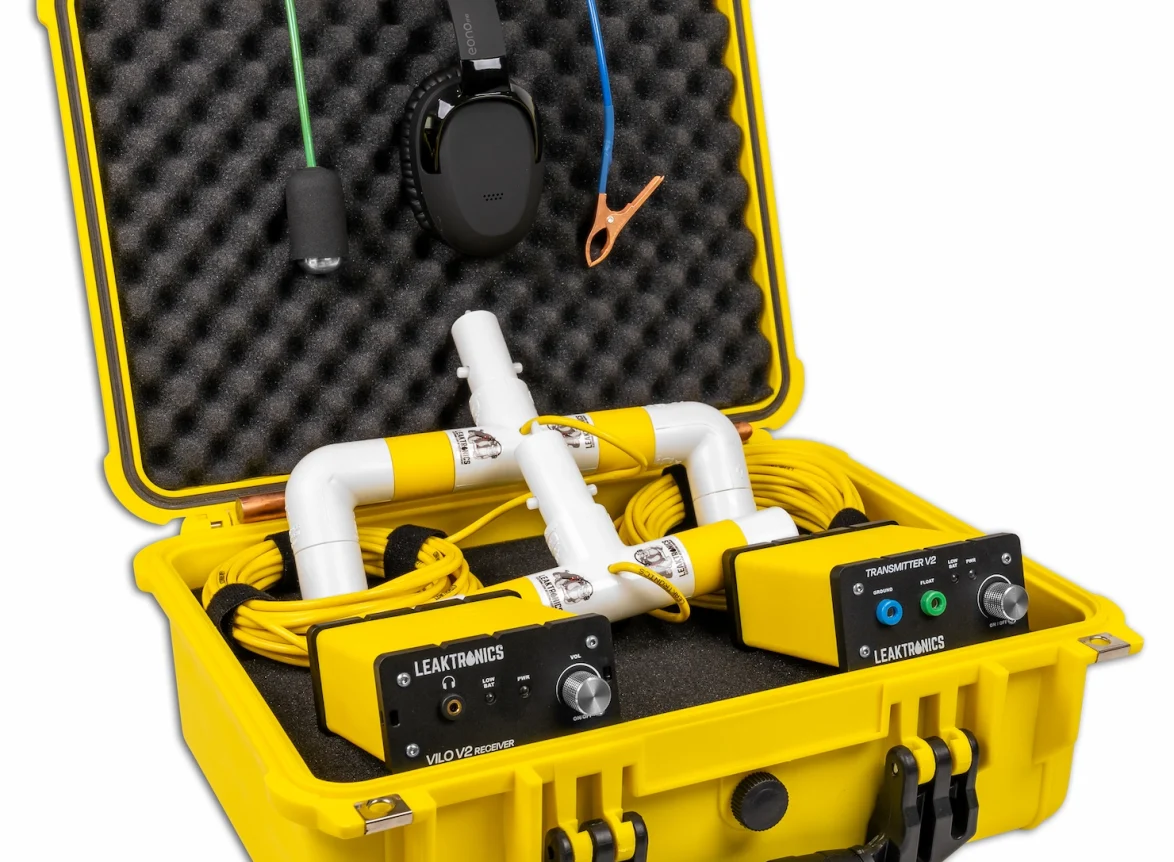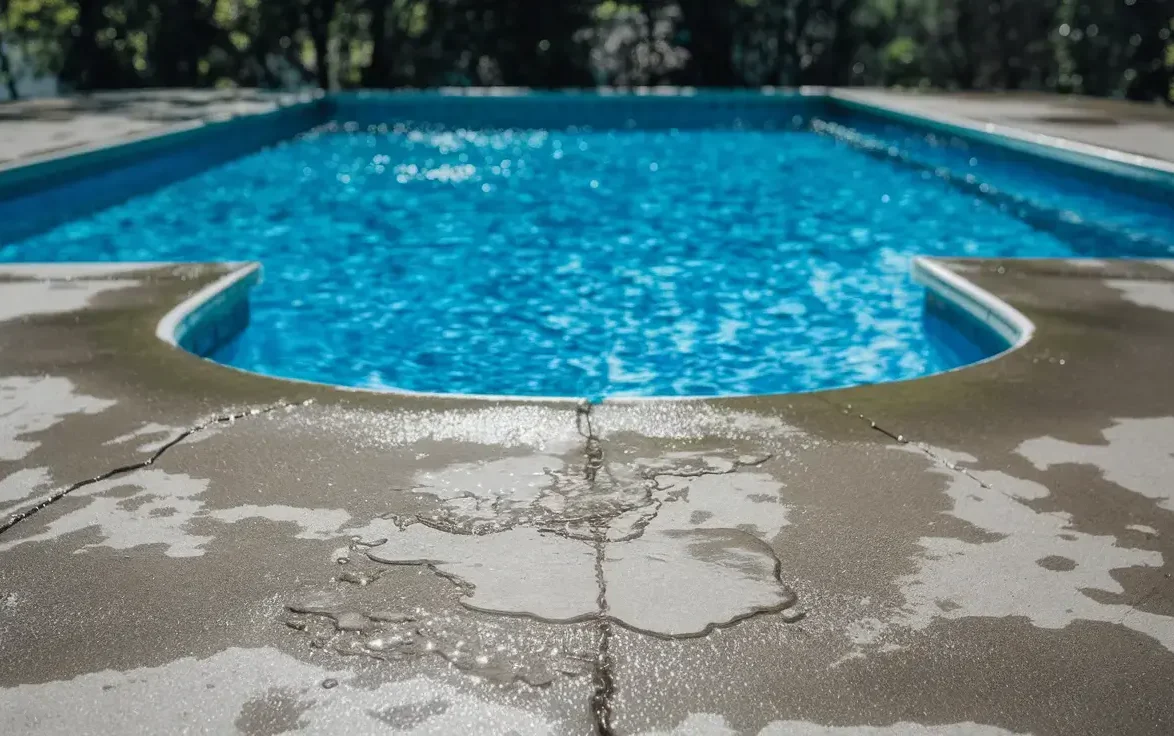It’s really simple, but we’ll get into it a little. A swimming pool inspection without a leak detection is useless. That sums it up; but you want to know why, correct?
Lets say your inspector gave a visual confirmation on our new pool and gave it the okay. You made the purchase of the house, and 4 days later, your pool has dropped 18 inches of its water level. Would you be upset? Of course, but who would you be upset with? You’d want to blame someone, most likely the inspector, but you have to be most upset with yourself here. You have to do your homework, and that includes hiring a Certified Swimming Pool Inspector – one that includes Leak Detection. Trying to get off on the cheap will cost you in the long run.
Here’s how those two things, the inspection and the leak detection, go hand in hand. When you, or the inspector come to a pool, the seller could have left a hose in the pool right up to when you arrived, leveling the pool to where it looks filled. The inspector sees a full pool and naturally assumes it isn’t leaking. Many do this, and it’s outright wrong.
An inspector who performs a leak detection using sensitive hydrophones however, will listen throughout the pool and hear if water is escaping the vessel. In a matter of minutes, by listening at areas where plastic protrudes through the pool: in skimmers, at main drains and return fittings, along tile lines and around lights and water features – he or she will know for certain if water is leaving the pool. As this inspector surveys other equipment, turns components on and off and tests features to make sure they work properly, they will see if things appear in order. A visual inspection, without a proper leak detection, however, does nothing more than identify that the items required to run the pool exist. It doesn’t say that they are secure.
There was a video online that showed a home inspector reviewing how he performs swimming pool inspections. He looked down at the floor of the pool and identified a single suction driven main drain. He stated, “From here, it looks to be in good working order,” and proceeded to check it off as being fine. Outside of the laws regarding the need for dual drain pots being a minimum of 36 inches apart from each other, and set up to disperse the suction when one of the two drains is covered, he also failed to let the homeowner know if there was any leak in or around that drain cover. If he had simply dropped a PoolScope over the drain and listened, he could have confirmed for certain that it was “fine.” It’s a good guess that he was the lesser cost option for having an inspection performed.
When it comes to an investment, like that of a swimming pool, don’t take chances. There have been ongoing lawsuits regarding undisclosed information when a home with a pool changed hands. It’s costly, nerve-wracking and it rarely solves the problem. If a pool is leaking, it will ultimately need to be fixed to stop the expense of an increasing water bill and of course, the expense the new homeowner has to pay to get the pool repaired.
Know all of the details about the pool up front by having your new pool inspected by a professional who performs proper leak detections. Better than that, choose one who uses the Pro Complete Leak Detection Kit by LeakTronics. Trained professional swimming pool inspectors and leak detectors are available globally and can be found on the LeakTronics website by clicking the link that reads “Find-A-Pro.”
In the end, the minor expense to have the job done properly will far outweigh what could be thousands of dollar out of pocket to get a leaking pool fixed, even after it “passed inspection without a leak detection.”

